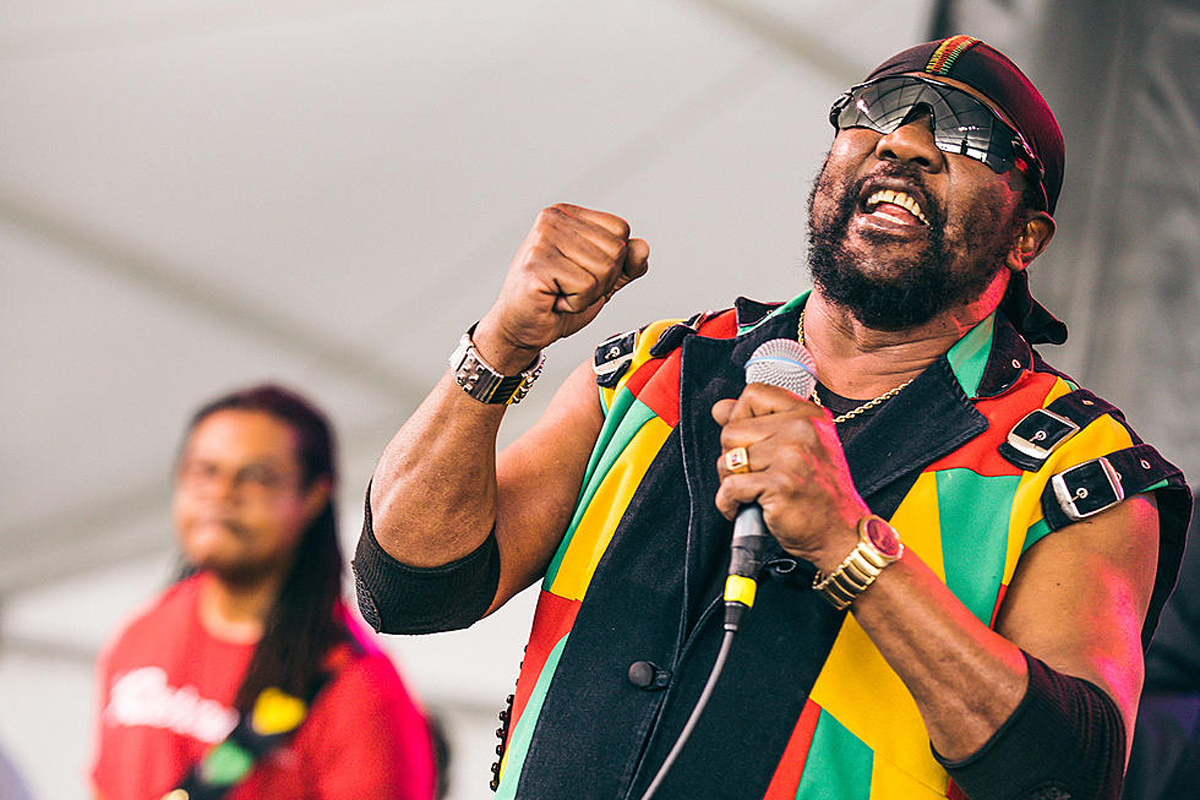Toots Hibbert Executor Looking Into ‘Bam Bam’ Royalties

The legal team representing one of the executors of the Toots Hibbert estate is making moves to pursue legal redress over rights and royalties from the Toots & The Maytals’ song Bam Bam.
Toots’ 1966 Festival Song, Bam Bam, was sampled in Sister Nancy’s song of the same name in 1982. Nancy’s version, produced by Winston Riley, borrowed heavily from the original’s chorus and also used an instrumental which sampled Ansell Collins’ 1974 song Stalag 17. It has since gained worldwide popularity and has, itself, been sampled over 120 times, according to WhoSampled.com.
Last week, Nancy’s Bam Bam was featured in the new James Bond film No Time To Die and in an episode of Netflix’s new series Maid .
Attorney-at-law Debra Archer, who represents Toot’s granddaughter Cressida Rattigan, revealed that no concrete action had been taken to pursue the late singer’s interests in the wake of his death on September 11, 2020, at the age of 77.
“There is no action of which I am aware of at this time. This is an unfortunate part of the drama being played out,” Archer told DancehallMag.
The ‘drama’ being played out is a reference to an internal conflict regarding the estate as the late singer’s will has not yet been probated. Archer said the legal team had nevertheless been instructed to “research the situation”.
“Since this has been brought to our attention that must change as that is a Toots original that the estate must protect. The executor I represent has instructed us to pursue this matter further. We are currently researching this situation,” Archer said.
The Bond film and the Netflix series are just the latest uses of Sister Nancy’s Bam Bam.
In 1998, the song was featured in the Hype Williams film Belly. In 2014, Bam Bam appeared in the Seth Rogen/Evan Goldberg film The Interview.
Lauryn Hill interpolated Bam Bam in her song, Lost Ones, from the 1998 album, The Miseducation of Lauryn Hill, while Kanye West and Rihanna sampled Bam Bam on the 2016 song Famous from The Life of Pablo. Jay-Z and Damian Marley sampled the song in Bam from the 2017 album 4:44. Jay-Z actually travelled to Jamaica to record the music video for Bam. While on his visit, he met Sister Nancy, who is featured in the video.
Dancehall legend Yellowman covered the song in 1982, as did Chakademus and Pliers for their All She Wrote (1992) album.
Other samples and interpolations of Bam Bam include Chris Brown and Wiz Khalifa’s Bomb, H.E.R.’s Do To Me, Kat Deluna and Trey Songz’s Bum Bum, and Lizzo’s Truth Hurts.
Sister Nancy revealed that she had not collected any royalties for the use of her song, until 2014 when she saw it in a Reebok ad and decided to seek legal advice. She reportedly received 50% ownership and ten years in past compensation.
“Yes, I’m getting the royalties now,” Nancy told NME in 2018. “Now I own 50% of the ‘One, Two’ album. At least I’m getting something now, I never used to get anything.”
A few weeks before his death, Toots Hibbert and his manager had told The Jamaica Observer newspaper that they had instructed a team of intellectual property rights managers to launch a thorough forensic audit to find out which musicians have covered Bam Bam and which entities and individuals have been collecting publishing and royalties, without giving him requisite credit.
At the time, Hibbert said he has never collected royalties for the song.
“Not a cent… I am the writer, the arranger, the composer, the singer and the producer of the original song,” he told Jamaica Observer.
According to Hibbert, he is listed as the principal songwriter in the US Copyright Office in Washington DC. Toots was also the writer, composer, singer, and producer of the original song.
Cabel Stephenson, former manager of Toots and the Maytals, said the singer has also instructed his publishers to do a thorough forensic accounting of all those who have covered his song without giving him credit.
“It is well established and cannot be dispute that he is the owner of his song and it was also registered in the House of Congress in the United States of America, so all who have been using his copyright without contacting him will soon discover who is the true intellectual copyright owner of this song. It’s a matter of long run, short catch,” Stephenson had said.
Under the World Intellectual Property Office (WIPO) rules, musicians must seek permission from the original copyright owners or their agents such as their record company or music publishing company, before covering or sampling the work of others.
